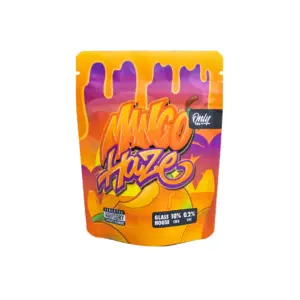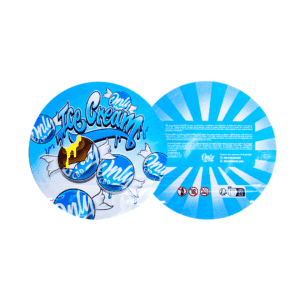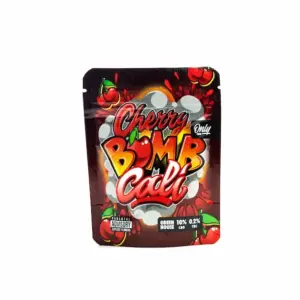A government-backed review of cannabis research found that THC may be more effective than CBD at relieving chronic pain.
The review, published in the Annals of Internal Medicine and funded by the U.S. Department of Health and Human Services, found that while cannabinoids may be generally helpful for chronic pain, products with a higher ratio of THC to CBD may be more potent than products with a higher ratio of CBD to THC. CBD, or cannabidiol, is one of the two main active ingredients in marijuana. The component does not typically cause a “high,” and the World Health Organization said it does not produce effects “indicative of any potential for abuse or dependence,” according to Harvard Health Publishing. On the other hand, THC, or tetrahydrocannabinol, is the component of marijuana that induces most of its psychoactive effects and gives users a “stoned” feeling. The compound can induce feelings of relaxation and sedation, but it can also cause hallucinations, impaired motor skills, and problems retrieving short-term memory, according to Live Science. To conduct the review, researchers analyzed 25 studies and considered the THC to CBD ratio of the products examined.
How THC and CBD Can Offer Pain Relief
CBD and THC activate different cannabinoid receptors in your body that can stimulate or inhibit brain chemicals and cause certain effects.
"We know a lot more about how THC works in terms of the molecular mechanism [than CBD]," he says. Steve Alexander , associate professor of molecular pharmacology at the University of Nottingham Medical School, who researches cannabinoids.
"THC activates certain cannabinoid receptors, one of which is located on nerve cells and the other on immune cells. When it activates the one on nerve cells, it reduces the sensation of pain," he adds.
The high THC provides may also play a role in how people experience pain. “A little bit of euphoria can help us not worry about being in so much pain, the same way other painkillers work,” she says. Angela D. Bryan , PhD, professor of psychology and neuroscience at the University of Colorado Boulder, who has studied cannabis and health.
Researchers understand CBD much less than THC, although there is anecdotal evidence that it may relieve pain in some people.
“We hypothesize that CBD might have some interference with serotonin [the brain chemical] and some influence on glycine receptors, which may be related to pain. We think it may do what it does by hitting multiple targets with a fairly light touch,” says Dr. Alexander. “It’s hard to tease it apart: Many people are trying [to study it], but no one has succeeded yet.”
Researchers haven't found much evidence that CBD can offer mental pain relief. However, the placebo effect may help some people experience less pain after taking CBD.
“The human mind is a very powerful thing, and many of the ways we experience medication are related to our expectations about that medication,” says Dr. Bryan.
How CBD can help with anxiety
However, scientists suspect that CBD may help relieve anxiety. This, in turn, could affect a person's pain perception and potentially make them feel more comfortable. However, research is still ongoing, and it's too early to draw any conclusive conclusions.
“We know that patients with chronic pain also have other morbidities, such as stress, anxiety, and depression. I'm interested in the possibility that cannabidiol may also have mechanisms by which we can alleviate some of those additional problems,” says Dr. Alexander.
That said, CBD may offer pain relief in more physical ways. It shows promise in reducing inflammation, which could ease the pain of autoimmune diseases like rheumatoid arthritis, says Dr. Bryan.
The bottom line: THC appears to have a greater effect on how the mind perceives pain, while CBD may work to relieve pain at the local source.
Which is better for pain relief: THC or CBD?
There's no definitive answer to the debate between THC and CBD for pain relief. The federal government still considers cannabis a Schedule 1 drug, a legal status that limits the types of research that can be conducted.
Using the current research available, Dr. Bryan says she believes a combination of THC and CBD together shows the most promise for pain relief.
“To the extent we have good data, it's unlikely that THC or CBD alone will be particularly effective for pain. It probably has to be a combination of the two,” he explained. “We're totally speculating at this point, but the way they work together could be that CBD has anti-inflammatory properties, while THC has properties that can help us cope better with pain.”
CBD and THC: Side Effects and Legal Concerns
However, THC may not be an option for everyone. Some people may live in states where THC is illegal; while others simply don't want the substance's psychoactive effects. In those cases, it might be worth trying CBD just to see if it offers pain relief.
CBD isn't legal everywhere either. And in states where CBD is legal, laws may vary regarding the amount of THC allowed in CBD products for them to be legally sold. Many states where certain CBD products are legal require them to contain less than 0.3 percent THC.
Before trying any of the substances, it's worth considering the potential side effects they may cause. CBD side effects include nausea, fatigue, and irritability, according to Harvard Health . CBD may also interact with certain medications. (such as blood thinners) and increase or decrease the concentration of certain medications in the bloodstream.
THC has its own set of side effects, including drowsiness and lethargy, increased appetite, increased heart rate, coordination problems, dry mouth, red eyes, slower reaction times, memory loss, anxiety, and mood swings.
“It’s very likely that people will respond to different versions of these cannabinoids, and some may not respond at all,” says Dr. Alexander. “There’s a tendency for anecdotal evidence to highlight the positive aspects of people who respond [to CBD], which is helpful, but it’s difficult to measure the number of people who don’t get a lasting benefit.”
























